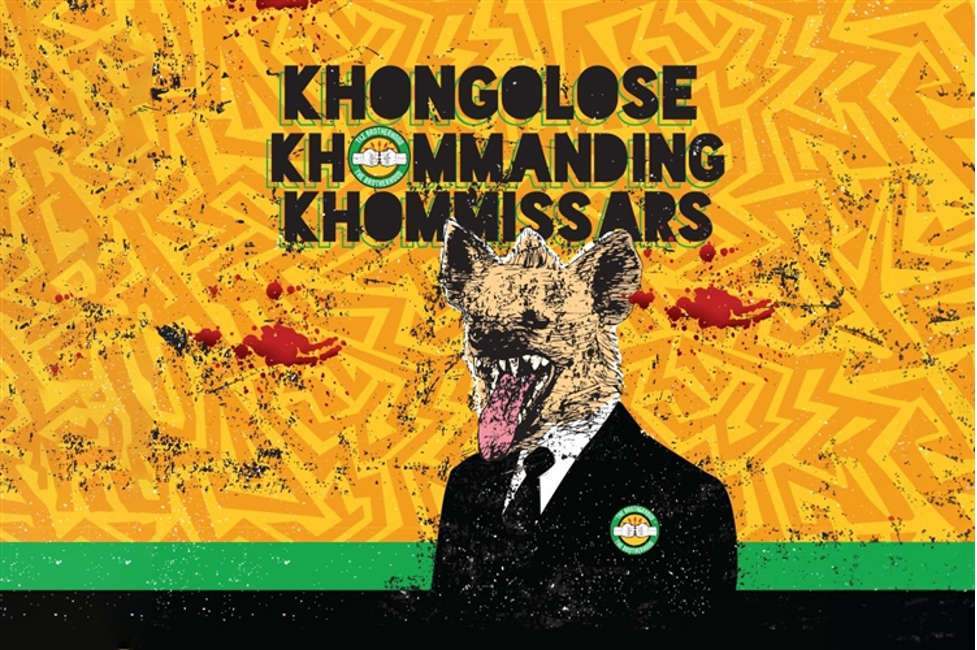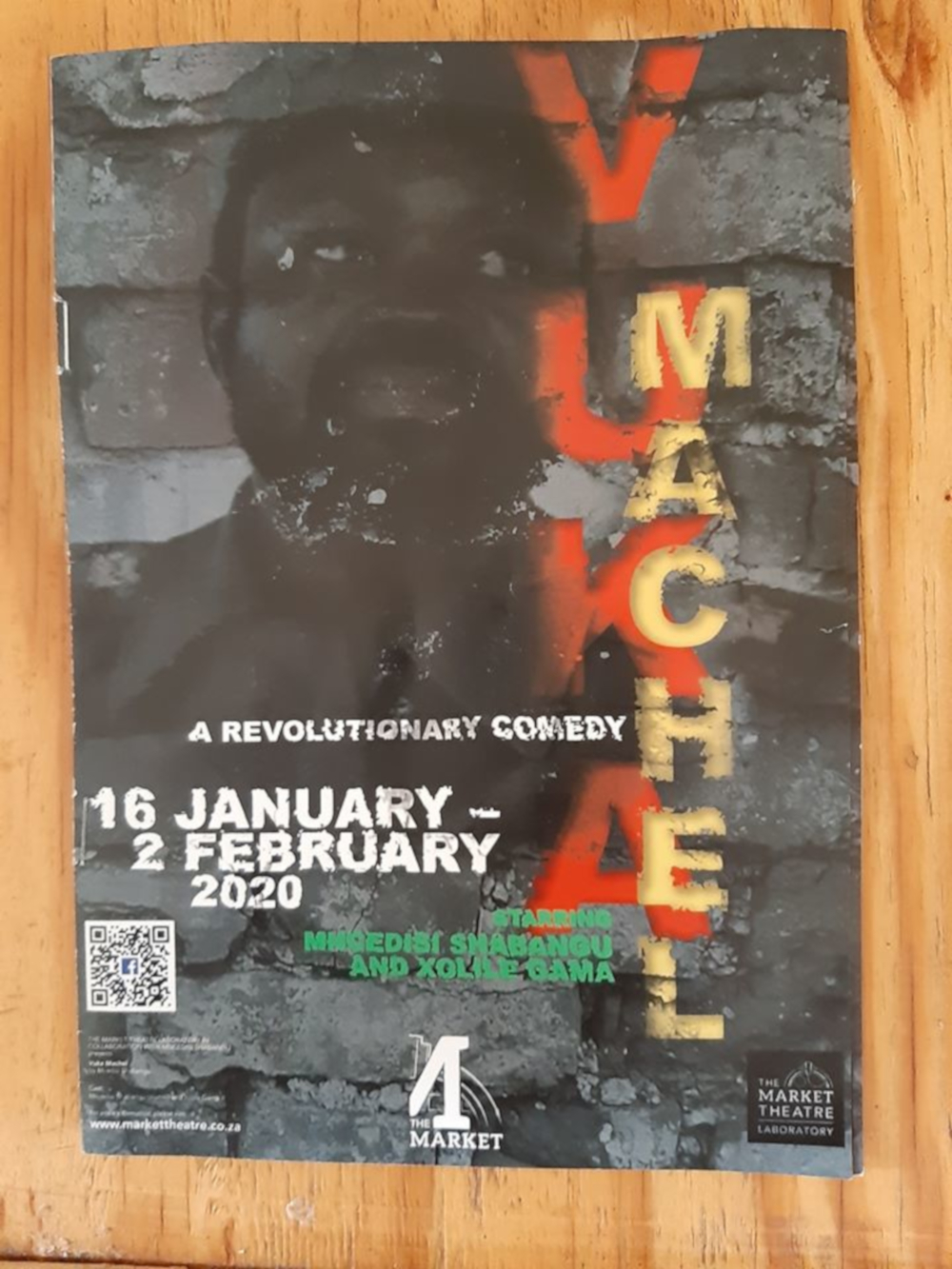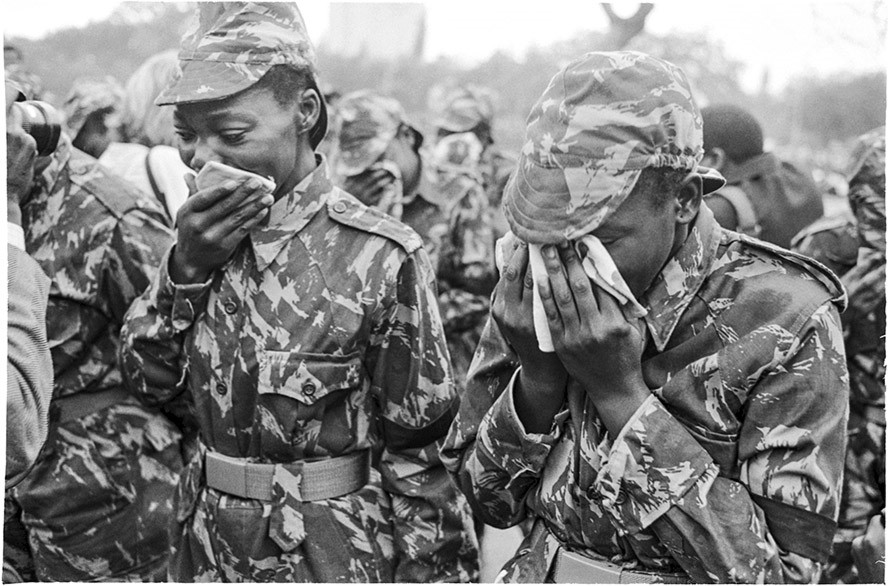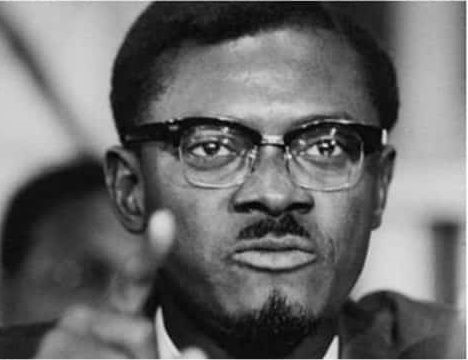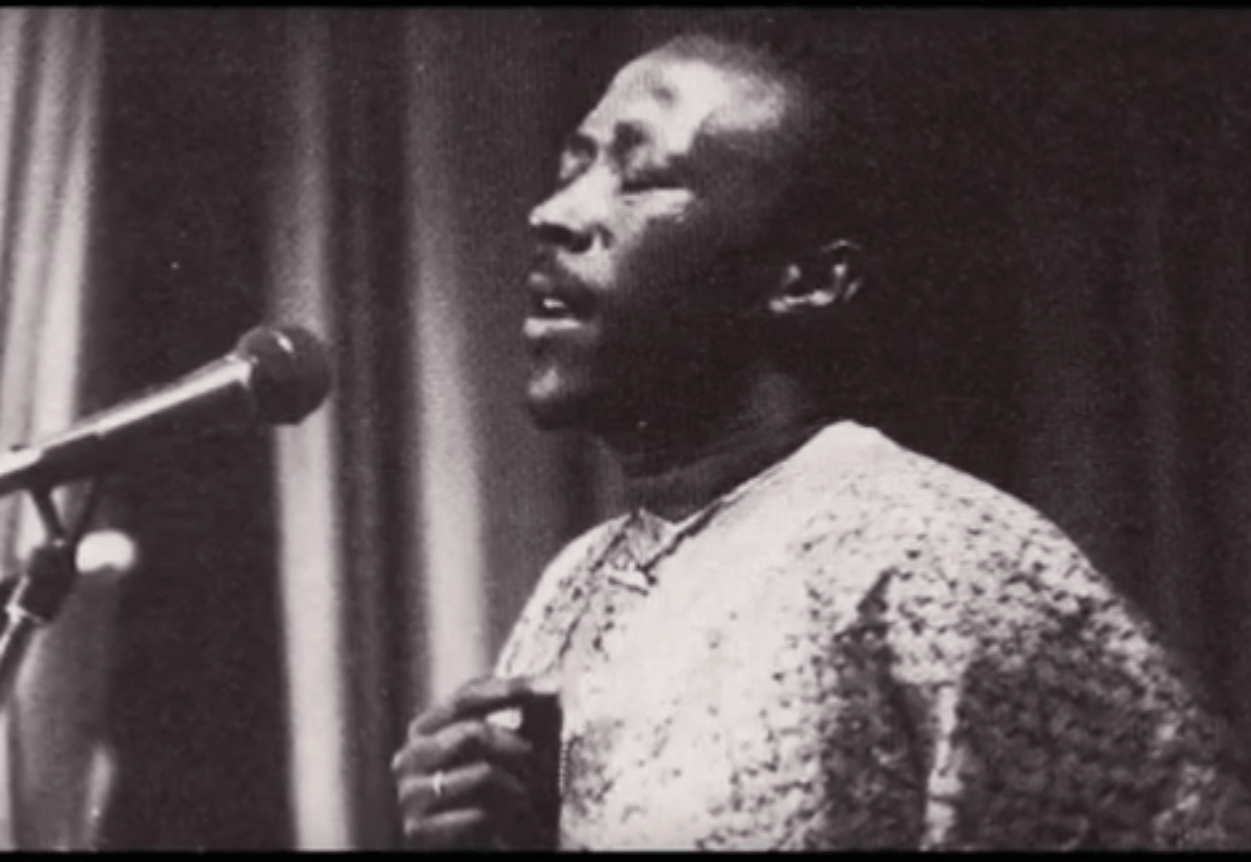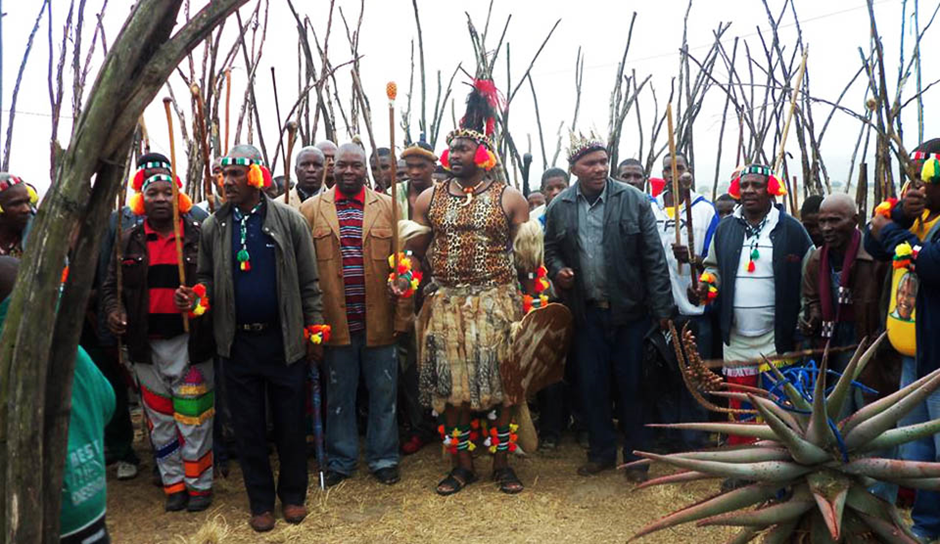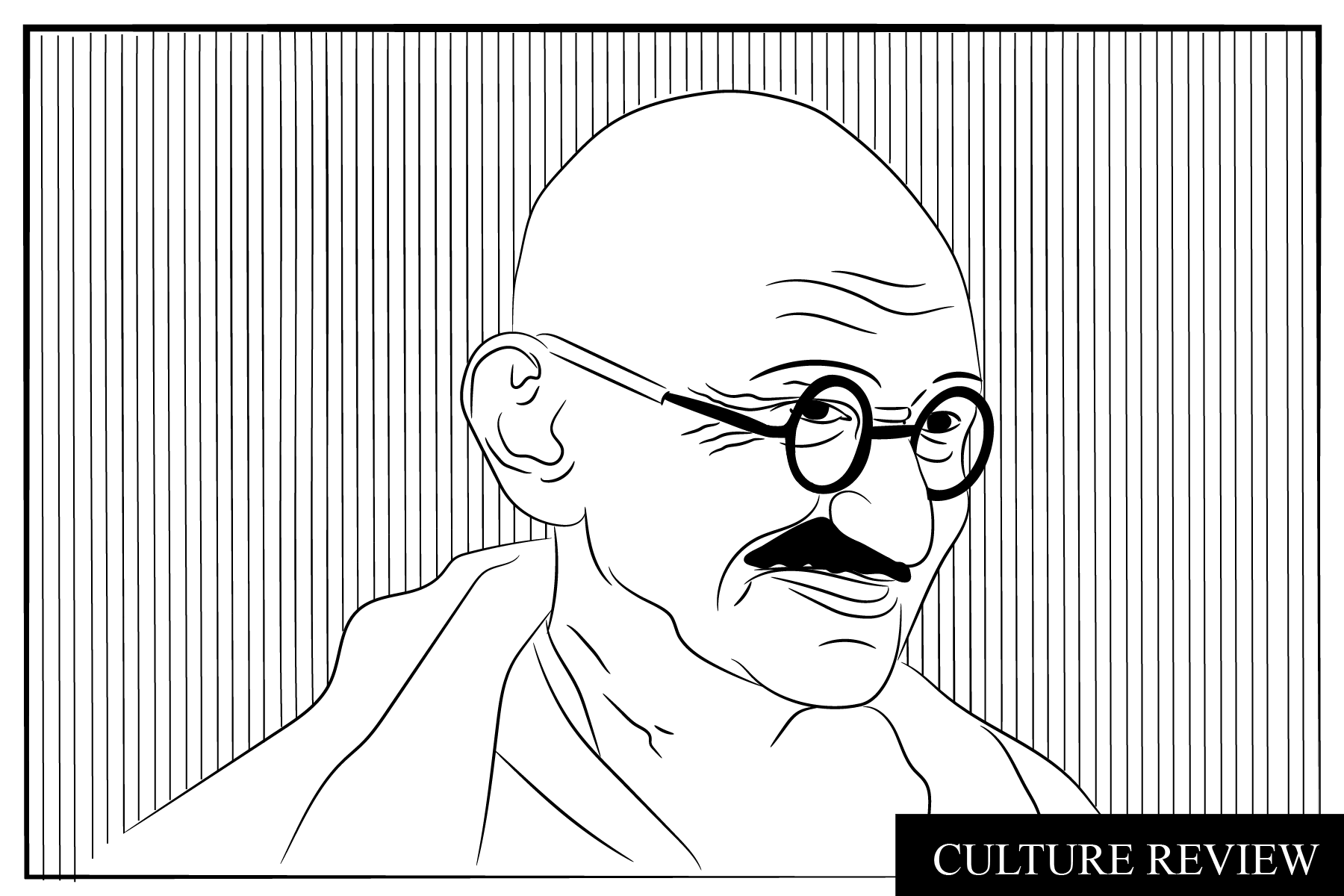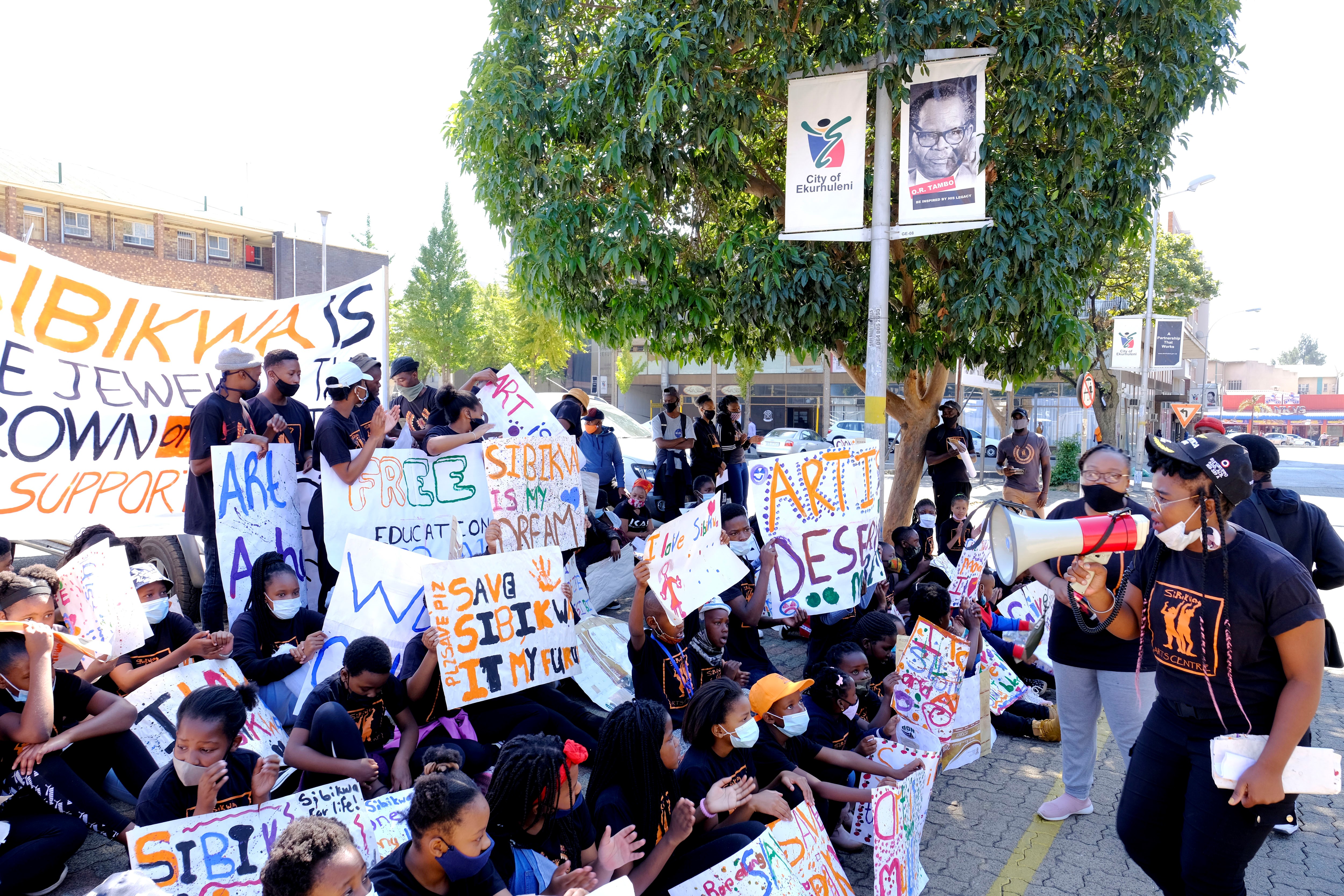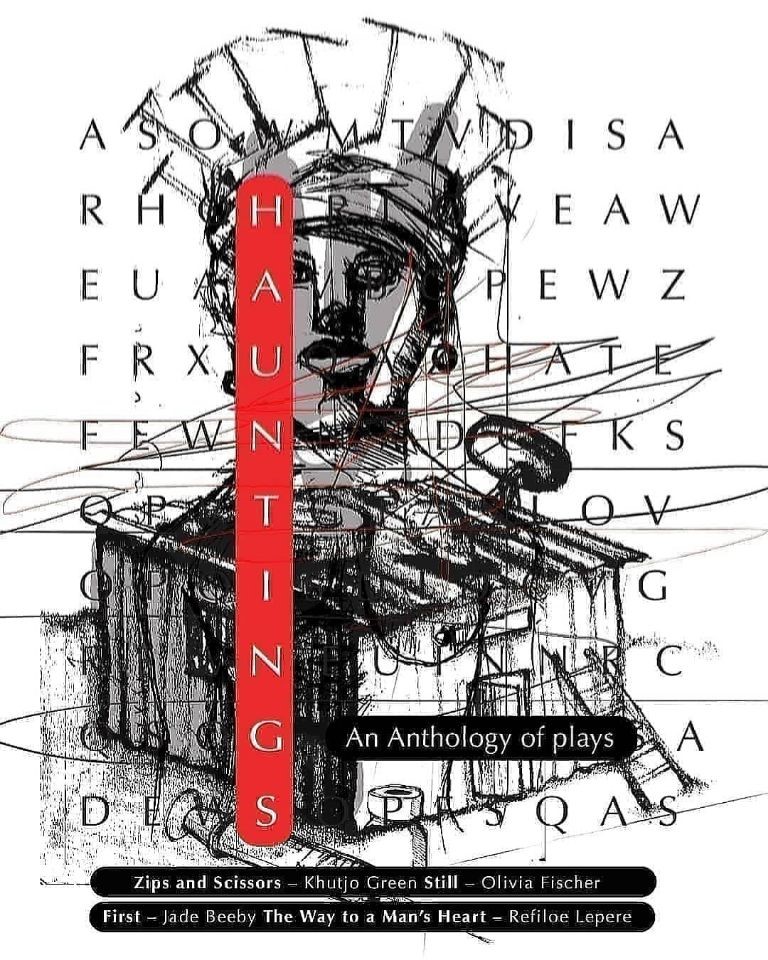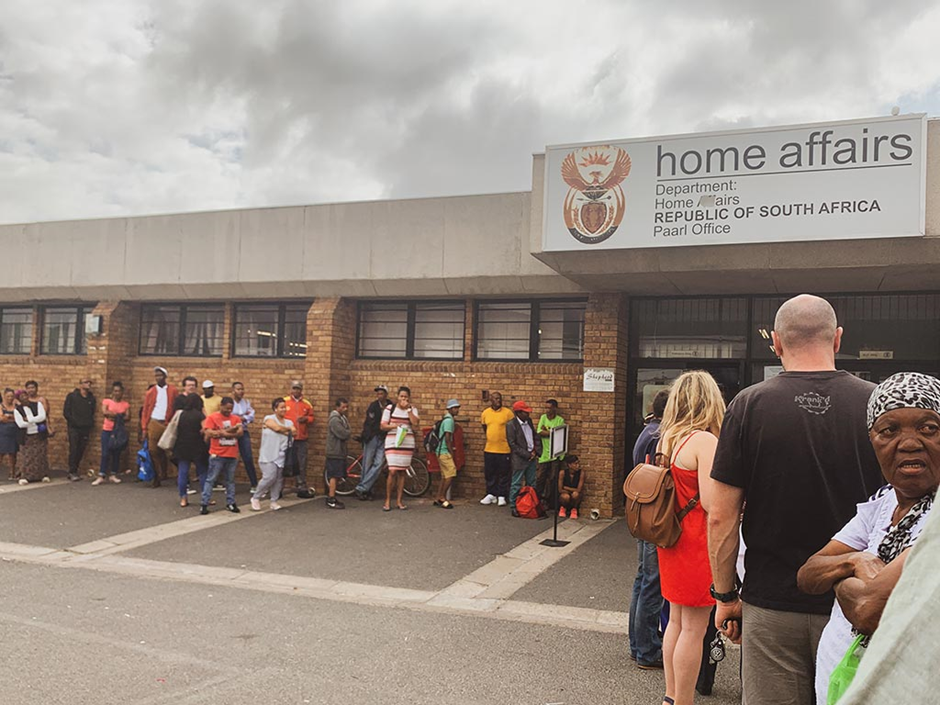When reflecting on the Black theatre movement of the 70s, black consciousness activist, cultural activist, and academic Sam Moodley wrote:
“We also pondered: Should we follow the same path as white theatre, which catered only to the elite few able to afford it, using language and techniques that the vast majority of black people did not understand?
We also questioned whether we should engage in "arts for art's sake."
Our answers were simple: Black theatre should open its doors to all black people who were denied access. It would be meaningless if we played to a select few.
Our answers were simple: Black theatre should open its doors to all black people who were denied access. It would be meaningless if we played to a select few.
We believed that Black Theatre should serve as a forum for black people to discover themselves as beings—with the ability to think, analyze, and form our own life values, rather than imitating values imposed by others.
We aimed to use symbols and images from our everyday lives, ones that resonated with black individuals, connecting to our feelings, thoughts, and experiences.
We strongly felt that the stage was a platform reflecting the country's political life. As politics is a branch of moral philosophy, it must address the state and its social and economic structures.
Therefore, we rejected the concept of "arts for art's sake." We strongly believed that Black Theatre had to uncover the inequalities, prejudices, and discrimination prevalent in society.
It was our mission to challenge the existing order, norms, and values. Black Theatre had to speak the language of rebellion, liberation, and revolution.”
Recently, I was among the audience at the State Theatre during the performance of the play 'Khongolose Khommanding Khommissars,' and these words by Sam Moodley kept replaying in my mind as I watched the play.
To emphasize the significance of this theatre production, it was appropriately preceded by a richly textured and thought-provoking lecture by Dr Lwazi Lushaba on the theme 'Nationalism and The Crisis of The Post-Colonial African State.' This session was brilliantly facilitated by Vuyisile Mshudulu, co-founder of Mutapa Afrocentric Dialogues.
'Khongolose Khommanding Khommissars' is a profoundly engaging work, both visually and thematically.
In a satirical manner, the play provides a sharp critique of South AfriKKKa's post-1994 Black political elite. It portrays the greed of this class and how it has become consumed by an insatiable appetite for consumption, leading to the institutionalization of the plunder of public resources and the relegation of Black people to a state of debilitating nothingness.

In this sense, 'Khongolose Khommanding Khommissars' poses discomforting yet necessary questions about the reality of freedom for Black people in post-1994 South AfriKKKa. It compels us to ask similar questions about every African country that has declared and continues to celebrate Independence Day.
Due to the themes, it tackles, 'Khongolose Khommanding Khommissars' also demonstrates an act of moral courage—a bravery often absent at a time when many of us (Black people) have adopted a strategy of silence.
There are few theatre productions today that confront the intricacies of blackness and neocolonialism in Afrika as uncompromisingly and explicitly as 'Khongolose Khommanding Khommissars' does.
A part of me suspects that the creators of 'Khongolose Khommanding Khommissars' may have been motivated by the same impulse that drove the essayist and novelist James Baldwin to write:
“I had never in my life seen so many black people in the theater. And the reason was that never before, in the entire history of American theater, had so much of the truth of Black people's lives been seen on stage. Black people ignored the theater because the theater had always ignored them.”
Baldwin wrote these words after observing Black people's reaction to Lorraine Hansberry's seminal play 'A Raisin In The Sun.'
Unlike other theatre productions, 'Khongolose Khommanding Kommissars' does not render Black people invisible. It centres Black people, their experiences, concerns, and aspirations, making them its focal point.
'Khongolose Khomanding Commissars' is a must-see for every Black person. The play is currently running at the State Theatre in Tshwane until 3 December 2023.
'Khongolose Khomanding Khommissars' is written by Jefferson Tshabalala and directed by the Theatre Duo, Billy Langa and Mahlatsi Mokgonyana, with Ketsia Velaphi as Assistant Director. Movement direction is by Ernest 'Ginger' Baleni.
The cast comprises a collection of some of our country’s most gifted artists: Xolile Gama, Tshireletso Nkoane, Lebohang Motaung, Anelisa Phewa, and Moagi Kai.
*Veli Mbele kaSompisi is an Afrocentric Essayist and co-founder of the Afrocentric think-tank Mutapa
Blog: Facebook: Sompisi Speaks

